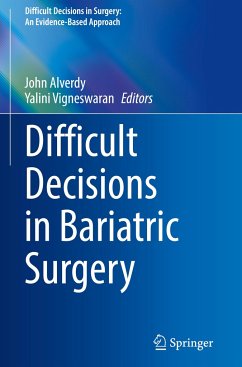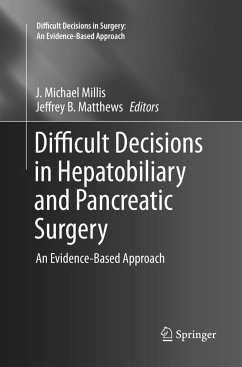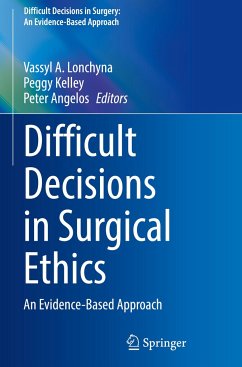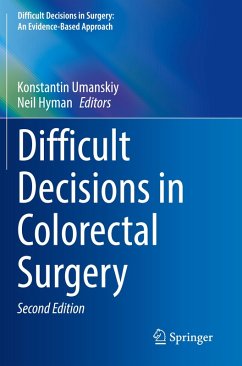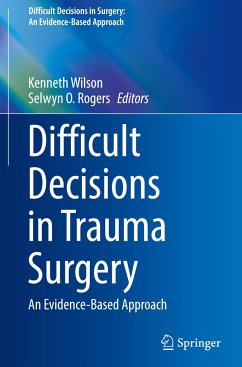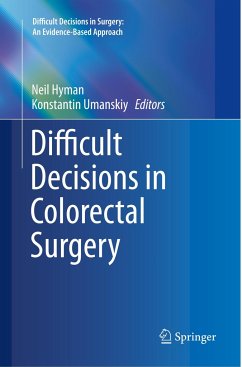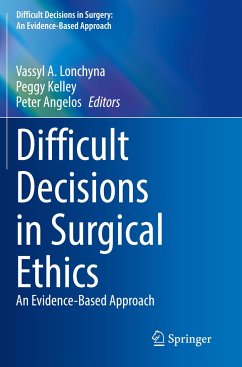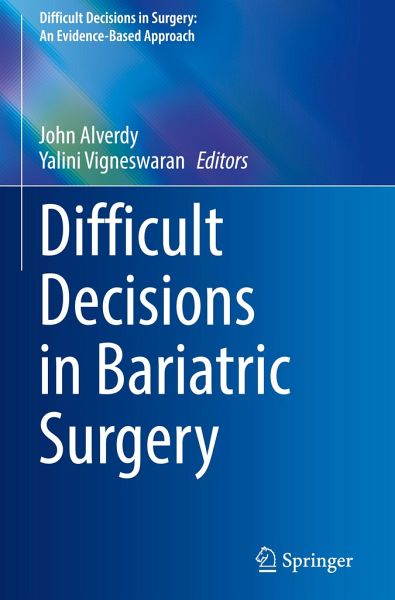
Difficult Decisions in Bariatric Surgery
Versandkostenfrei!
Versandfertig in 6-10 Tagen
98,99 €
inkl. MwSt.

PAYBACK Punkte
49 °P sammeln!
This book provides a practical guide to decision making within bariatric surgery. Through uniform and well-structured chapters, topics relating to patient selection, preoperative preparation, the ethics of bariatric surgery, choice of procedure, complications, late failure and management, malabsorptive procedures, and pediatric bariatric surgery are discussed and examined.Difficult Decisions in Bariatric Surgery aims to help readers navigate an increasingly complex surgical specialty and come to reasoned and evidence-based conclusions. This book is of interest to practicing and trainee surgeon...
This book provides a practical guide to decision making within bariatric surgery. Through uniform and well-structured chapters, topics relating to patient selection, preoperative preparation, the ethics of bariatric surgery, choice of procedure, complications, late failure and management, malabsorptive procedures, and pediatric bariatric surgery are discussed and examined.
Difficult Decisions in Bariatric Surgery aims to help readers navigate an increasingly complex surgical specialty and come to reasoned and evidence-based conclusions. This book is of interest to practicing and trainee surgeons, endocrinologists, endoscopists, and pediatricians.
Difficult Decisions in Bariatric Surgery aims to help readers navigate an increasingly complex surgical specialty and come to reasoned and evidence-based conclusions. This book is of interest to practicing and trainee surgeons, endocrinologists, endoscopists, and pediatricians.



